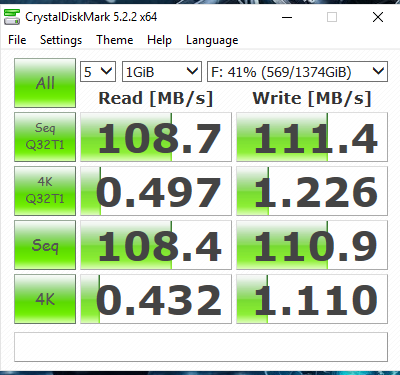New
#1
Getting 18-22 mBps while transferring any data in the same hard drive
its a Seagate 2TB 5900 rpm drive. Model no. is ST2000VM002-9UY166 2000.3 GB.
Whenever I start transferring, I get about 70-80 mBps for the first few seconds but then it drops down to a constant 18-22mBps.
I am not copying huge amounts of small files. I am copying individual big videos or iso files.
The task manager shows about 50 mBps at 100% disk usage as I am writing and reading from the same disk. I used crystaldisk mark 5 and I got significantly better results. The results are shown below.
I guess I am having this problem since I bought it just a few weeks ago.
I have an external usb 3.0 hard drive and I get about 40 mBps read as well as write speed on it. It doesn't matter if I connect it to a usb 3 port or usb 2 port.
I checked for the DMA thing but I couldn't find any channels in the IDE ATA/ATAPI controllers section. I just see controller for my hard drive.
I tried searching for some related stuff in bios but all I found was that my hard drive was set to AHCL mode or whatever it is.
I even tried changing the sata port to which the hard drive was connected in my motherboard.
The results of crystaldisk info are shown below-
Any help would be highly appreciated.





 Quote
Quote